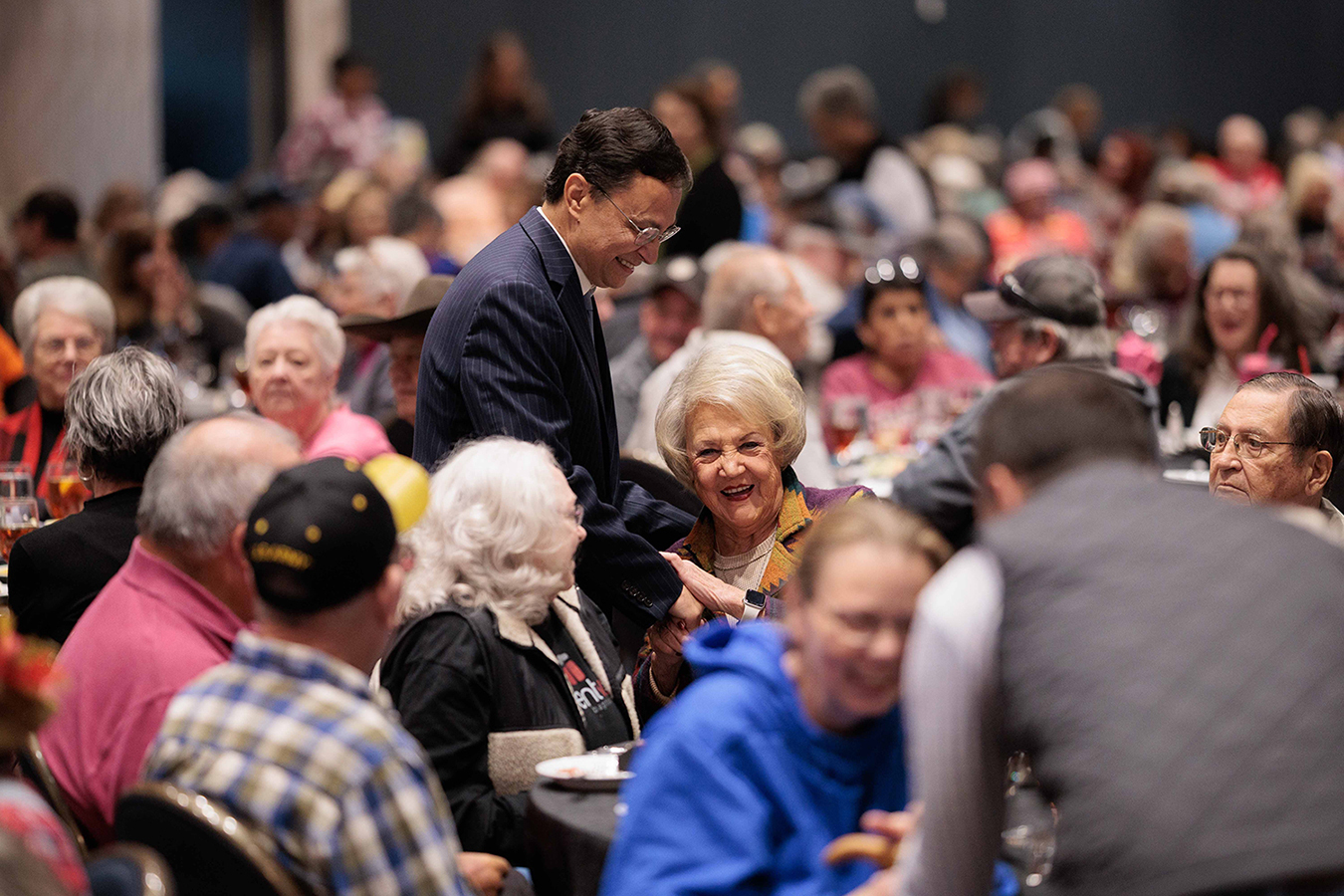
- Details
- By Chuck Hoskin Jr
Guest Opinion. As Cherokee Nation citizens, we draw strength from those who came before us. Our elders are the foundation of our communities, the keepers of our history, and the heart of our families. As we gathered recently for the annual Cherokee Elder Summit, we renewed a promise to care for those who have showed us the way.
That promise is taking shape through a major expansion of our elder nutrition services, backed by up to $2 million from the tribe’s Public Health and Wellness Fund.
This investment will expand food access, create new nutrition sites, and strengthen support for Cherokee elders across our 7,000-square-mile reservation in northeast Oklahoma. It’s more than an infrastructure project, it’s a commitment to food security, long-term wellness, and personal dignity.
The expansion begins with a new elder nutrition site in Dewey, joining an existing partnership with a local Cherokee community organization. Two more sites will follow, identified through data and community need. By listening to our elders and assessing where the gaps exist, we are ensuring that no community is overlooked and that every Cherokee elder can share in the security of a warm meal and a welcoming space.

In the coming year, meal service at all sites will increase to five days per week. These meals are far more than nutrition, they are moments for fellowship, laughter, and coming together to share a meal and stories. These are the kind of values that bind us as Cherokee people.
We also announced our decision to rename the Senior Nutrition Program as the Cherokee Nation Elder Nutrition Program, reflecting this deeper sense of cultural respect. It honors our Cherokee beliefs of valuing one another and leaving no Cherokee behind. And it is critical we care for one another through every season of life.
This effort is part of a larger vision: to make sure every Cherokee elder can age with security, independence, and connection to our tribal culture. That includes investing in a network of community gathering locations, upgrading kitchens and dining areas, and ensuring transportation options for those who live close by. It also includes creating opportunities for cultural enrichment, like field trips, Cherokee language activities, and intergenerational events that bring youth and elders together in meaningful ways.
By 2026, every site will undergo a full review to ensure elders have access to safe, modern, and welcoming spaces. Community partners will receive support through new Elder Nutrition Partner Grants, reinforcing the shared responsibility that we all have to look after the most vulnerable among us.
Additionally, Cherokee Nation is expanding food assistance for Cherokee households nationwide by authorizing an emergency round of Supplemental Nutrition Assistance Program (SNAP) support for eligible Cherokee families to help fill the gap caused by the federal government shutdown.
Our one-time, direct expansion – funded through the Public Health and Wellness Fund – will provide extra grocery support during a time when rising costs and federal delays are straining family budgets. This action ensures that Cherokees, no matter where they live, are not left behind and have access to more food spending power at a time when the federal SNAP program has been reduced to partial payments due to federal dysfunction. It is another example of Cherokee Nation stepping up when others fail to act, reinforcing that our commitment to food security extends to every Cherokee citizen across the United States.
As for our elders, far too many still face the grim reality of hunger, isolation and other barriers to health and happiness. Cherokee Nation is changing that story. By investing in food security and elder care, we are building a stronger, more compassionate Nation, one that never forgets those who taught us what it means to be Cherokee.
Caring for our elders isn’t just policy, but rather our way of life. When we feed our elders, we are feeding the roots of our Nation, ensuring that the wisdom, strength and compassion continue to nourish our people for generations to come.
Chuck Hoskin, Jr. is the principal chief of the Cherokee Nation.
More Stories Like This
The SAVE America Act Threatens Native Voting Rights — We Must Fight BackThe Presidential Election of 1789
Cherokee Nation: Telling the Full Story During Black History Month
Jesse Jackson Changed Politics for the Better
Native News Online at 15: Humble Beginnings, Unwavering Mission
Help us defend tribal sovereignty.
At Native News Online, our mission is rooted in telling the stories that strengthen sovereignty and uplift Indigenous voices — not just at year’s end, but every single day.
Because of your generosity last year, we were able to keep our reporters on the ground in tribal communities, at national gatherings and in the halls of Congress — covering the issues that matter most to Indian Country: sovereignty, culture, education, health and economic opportunity.
That support sustained us through a tough year in 2025. Now, as we look to the year ahead, we need your help right now to ensure warrior journalism remains strong — reporting that defends tribal sovereignty, amplifies Native truth, and holds power accountable.
 The stakes couldn't be higher. Your support keeps Native voices heard, Native stories told and Native sovereignty defended.
The stakes couldn't be higher. Your support keeps Native voices heard, Native stories told and Native sovereignty defended.
Stand with Warrior Journalism today.
Levi Rickert (Potawatomi), Editor & Publisher

